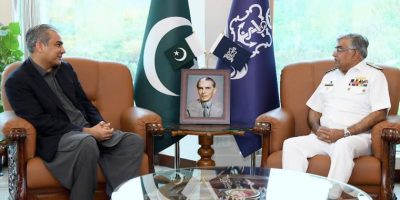Experts call for sharing of expertise at regional level to combat COVID-19 pandemic

ISLAMABAD, MAY 20 (DNA) – COVID-19 has posed similar socio-economic challenges to all the neighboring countries of Pakistan, therefore, an enhanced regional cooperation from sharing of expertise to resources is the need of hour to save people of the entire region from the pandemic.
This was the crux of an online dialogue titled: ‘Rise of Coronavirus in Pakistan’s neighboring Countries–the challenges and Policy Responses’ organized by the Sustainable Development Policy Institute (SDPI) here. Social and political analysts and experts from across the region participated in the dialogue.
Highlighting the socio-economic impacts of the COVID-19, former Member of Planning Commission of Pakistan Dr Zubair Iqbal said that the pandemic has hit Afghanistan in worst form since lack of peace and stability in the country left very little room for any meaningful relief to the people.
He said that India has also been facing the dilemma of ‘lockdown or no lockdown’ because provision of relief to a large segment of population for a longer period is hardly possible.
Adnan Tabatabai, Chief Executive Officer, Center for Applied Research in Partnership with the Orient (CARPO), briefed the participants on the pandemic impact in Iran and said that all the regional countries provided valuable support to Iran to come out of the grave crisis.
He said that the Iranian government had failed to act at a time when the pandemic broke out. However, things started improving during the month of April. He added that Iranian economy is too fragile to afford the lockdown solution that’s why it was necessary to keep tracks to China open as they serve as lifeline for Iran’s economy. Complex bureaucratic responses were responsible for the delayed response by Iran, he said, adding that lockdown was not an option, as Iran’s economy was in no position to keep the population fed.
He suggested that diplomatic channels should be used especially for the return of people who are stranded abroad. Data amongst organisations needs to be integrated and mobile hospitals need to be set up at border areas, he said.
Khalid Alyassin, Counsellor and Deputy Head of Mission of the Kuwait Embassy in Pakistan, said that Kuwait is a country with a large chunk of migrant population, so the government has announced a number of measures to enable them to face the challenge. He said that Kuwait is a staunch supporter of regional cooperation, especially to fight the challenge posed by the global pandemic.
Tara Sepehri Far, a representative of Human Rights Watch was of view that public trust is a key to governments to deal with the crisis effectively. This crisis has exacerbated the disparities that exist, she said and added that different segments of the population experienced the pandemic differently and this needs to be understood to tackle the situation effectively.
The structural problems also proved to be major obstacles for the governments to deal with such a huge challenge, therefore, these problems need to be redressed for an effective government response, she added.
Dr Fatemeh Kamali, Visiting Fellow, SDPI earlier highlighted the importance of sharing the learning and expertise at regional level and said that this approach could benefit the people from entire region.=DNA
===========
Related News

Mohsin Naqvi lauds Pakistan Navy’s role in defending frontiers
ISLAMABAD, JUL 8 /DNA/ – Federal Minister for Interior MohsinNaqvi visited Naval Headquarters, Islamabad andRead More

PHC declares KP reserved seats notification null and void
Peshawar, JUL 8: The Peshawar High Court has declared null and void two notifications issuedRead More


Comments are Closed